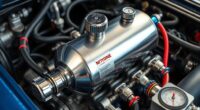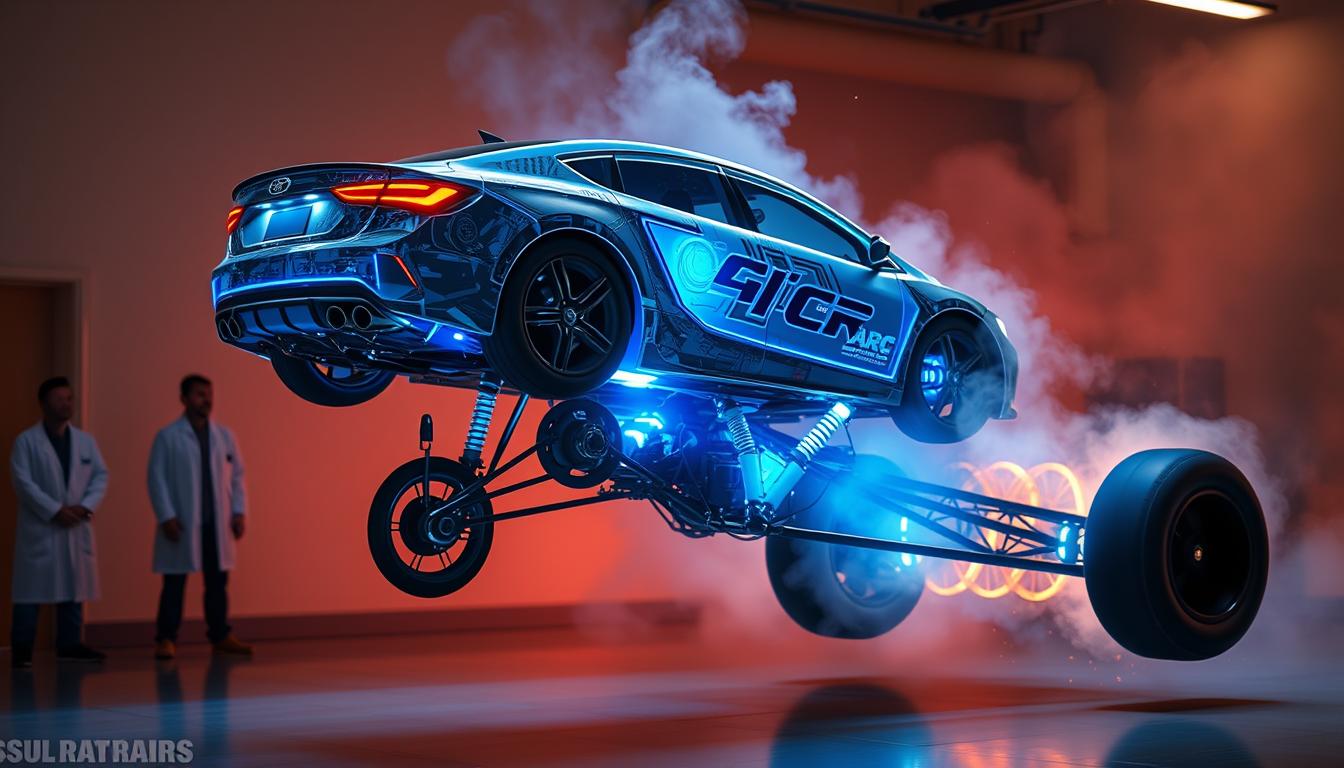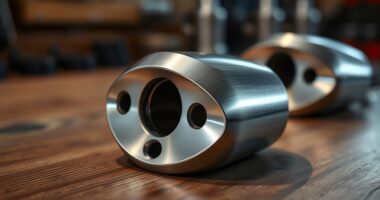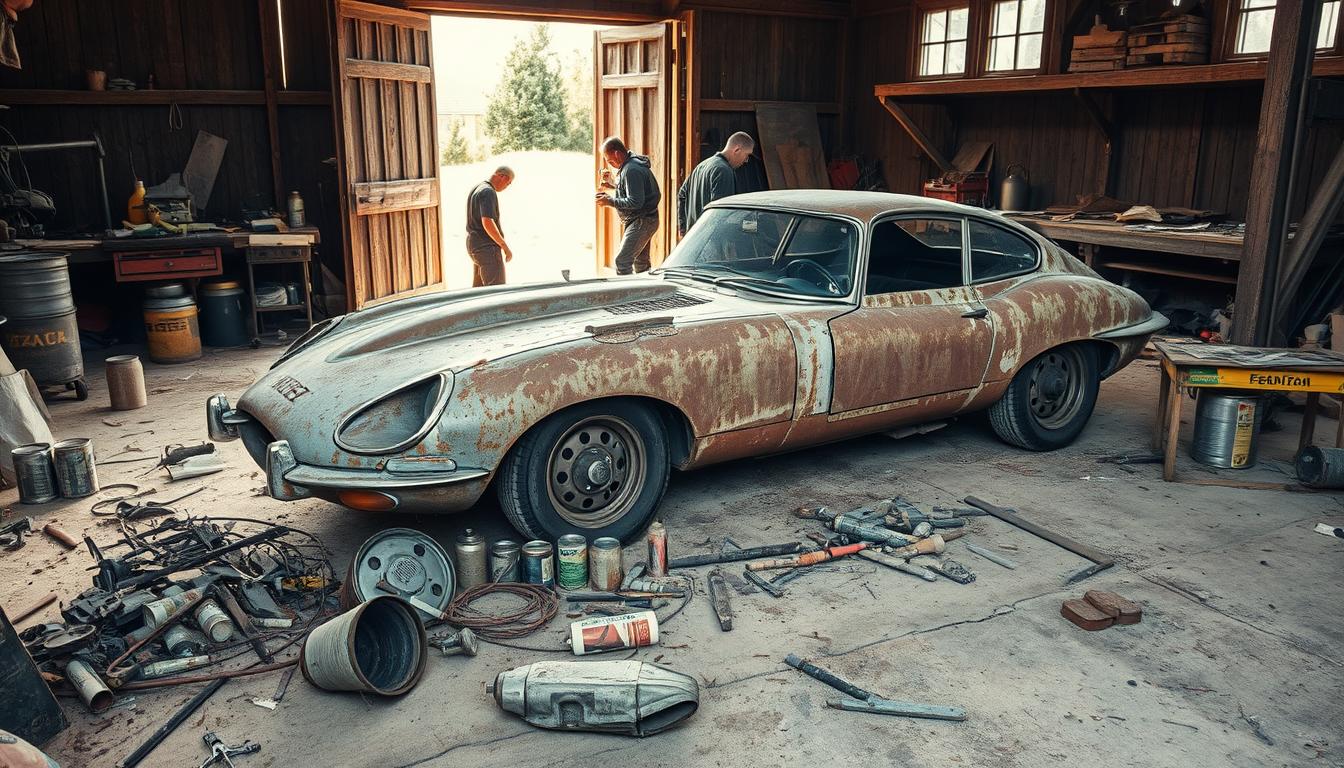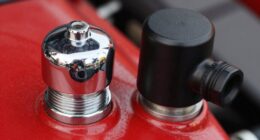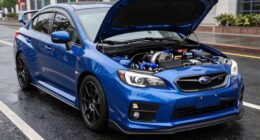To upgrade your fuel system for high-power builds, you need a stronger fuel pump that supplies consistent flow and pressure, along with larger, durable fuel lines to prevent restrictions. Matching these components carefully guarantees your engine gets the right amount of fuel smoothly, preventing lean conditions that could cause damage. Properly designed, high-quality upgrades not only boost performance but also improve reliability. Keep exploring to discover how to tailor your setup for maximum safety and efficiency.
Key Takeaways
- Match high-performance fuel pumps with appropriately sized fuel lines to ensure adequate flow and maintain stable pressure.
- Upgrade to larger diameter, durable fuel lines such as braided stainless steel to prevent restrictions and heat damage.
- Ensure all components—pump, lines, injectors, regulator—are compatible and properly matched for optimal fuel delivery.
- Use high-capacity pumps designed for high horsepower to maintain consistent fuel pressure during aggressive driving.
- Design the system to prevent leaks and pressure drops, supporting reliable fuel delivery under high-demand conditions.
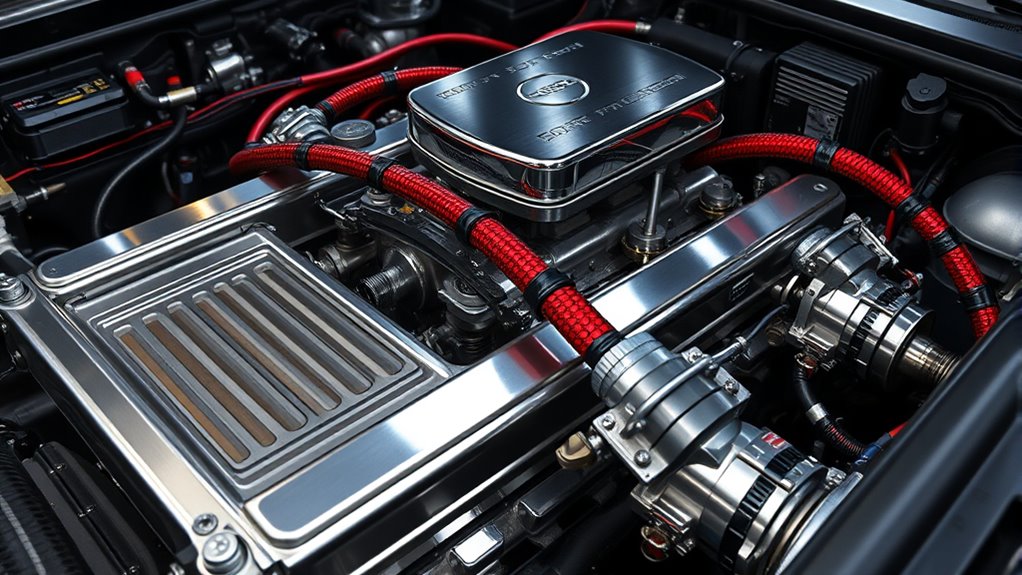
Upgrading your fuel system can substantially boost your vehicle’s performance and efficiency. When you’re pushing your engine to higher power levels, relying on stock components just won’t suffice. To get the most out of your build, you need to focus on the fuel delivery system, starting with essential upgrades like fuel pump upgrades and fuel line upgrades. These modifications ensure your engine receives the right amount of fuel reliably, preventing lean conditions that can cause damage or power loss.
Fuel pump upgrades are a critical step in supporting high-power setups. Stock fuel pumps are designed for typical driving conditions and may not deliver sufficient volume or pressure when your engine demands more fuel. Upgrading to a high-performance fuel pump ensures your engine gets consistent fuel flow, even under hard acceleration or high RPMs. When choosing a new pump, consider its flow rate and pressure ratings, matching them to your engine’s horsepower goals. A reliable, high-capacity pump will maintain stable fuel pressure and help maximize power output, especially if you’re running forced induction or a heavily modified intake system.
Alongside a fuel pump upgrade, fuel line upgrades are equally important. Factory fuel lines are often too narrow or made from materials that can’t handle increased flow demands. Upgrading to larger diameter fuel lines reduces pressure drop and prevents flow restrictions, ensuring your engine receives fuel at the correct volume and pressure. High-quality fuel lines made from durable materials like braided stainless steel not only improve flow but also resist heat and abrasion, which are common in high-performance applications. Properly sized fuel lines also help maintain consistent fuel pressure throughout your system, reducing the risk of lean conditions during aggressive driving.
When planning your fuel system upgrades, remember that these components must work in harmony. Upgrading just the fuel pump without considering the fuel lines can create bottlenecks, negating the benefits of the pump upgrade. Conversely, installing larger lines without a suitable pump might not improve flow sufficiently. It’s essential to match your fuel pump’s output with appropriately sized fuel lines, fuel injectors, and a fuel pressure regulator. Doing so ensures your entire system functions smoothly, delivering the right fuel volume at the right pressure to meet your engine’s increased demands. Additionally, safe fuel system design is crucial for preventing leaks and ensuring reliable operation under high-pressure conditions.
Frequently Asked Questions
Can I Upgrade My Fuel System Myself or Should I Hire a Professional?
You can attempt a DIY installation if you’re experienced with car modifications, but upgrading fuel systems for high-power builds is complex and risky. It involves precise fitting and understanding fuel flow requirements. For safety and peak performance, it’s best to hire a professional for installation and follow-up professional tuning. This ensures your system operates efficiently and prevents potential damage, giving you peace of mind and reliable high-power performance.
What Are the Signs My Current Fuel System Needs Upgrading?
Oh, the sweet symphony of a struggling engine! If your fuel pressure drops unexpectedly or your injector performance falters—like sputtering at a fancy dinner—you know it’s time to upgrade. Notice hesitation, poor throttle response, or frequent stalls? Those signs scream for a fuel system upgrade. Don’t ignore these clues; your engine’s performance depends on maintaining peak fuel pressure and injector performance for that high-power thrill.
How Does Fuel Quality Affect High‑Power Fuel System Performance?
Fuel quality directly impacts your high-power fuel system performance by affecting pressure regulation and combustion efficiency. Poor-quality fuel can cause clogging, inconsistent pressure, and knocking, reducing power output. Using fuel additives can improve fuel stability and cleaning, ensuring peak pressure regulation. High-quality fuel prevents contaminants from damaging components and keeps your system running smoothly, helping you maximize engine performance and avoid costly repairs.
Are There Specific Brands Recommended for High‑Performance Fuel Components?
You should consider trusted fuel pump brands like Walbro or Aeromotive, known for their durability and performance under high demands. For high-pressure injectors, brands like Bosch andInjector Dynamics offer reliable options that guarantee precise fuel delivery. These brands are specifically designed to handle increased fuel flow and pressure, making them ideal for high-power builds. Investing in quality components from these brands helps optimize your fuel system’s performance and longevity.
How Does Upgrading My Fuel System Impact Vehicle Emissions and Legality?
When you upgrade your fuel system, it can boost performance but also affect emission compliance and legal considerations. About 20% of modified vehicles fail emissions tests due to increased pollutants. Upgrading may lead to non-compliance with local regulations if not done properly, risking fines or penalties. Always check your area’s laws and verify your upgrades meet legal standards to avoid issues while enjoying your high‑power build.
Conclusion
As you upgrade your fuel system, picture your engine roaring to life like a fierce beast, fueled by precision and power. Every new component works in harmony, delivering clean, unstoppable energy that propels you forward. Feel the rush as your high-power build reaches its peak, igniting confidence with every throttle. This upgrade isn’t just about parts — it’s about transforming your ride into a powerhouse ready to conquer any road ahead.

